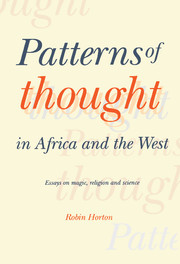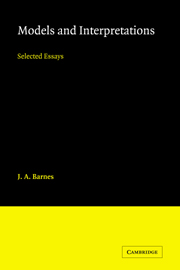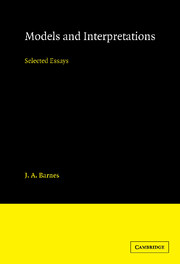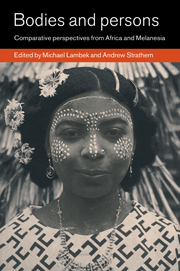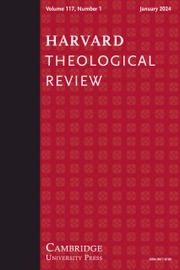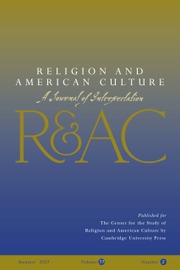Patterns of Thought in Africa and the West
Robin Horton's critical and creative writings on African religious thought have influenced anthropologists, philosophers, and all those interested in the comparative study of religion and thought. This selection of some of his classic papers, with a new introduction and postscript by the author, traces Horton's theoretical ideas over thirty years. In attempting to understand African religious thought, he also tackles broader issues in the history and sociology of thought, such as secularisation and modernisation. Part I is a critical assessment of two established interpretive approaches, the Symbolist and the Theological. Part II proposes an alternative 'Intellectualist' approach that emphasises the structural and processual similarities between religious and scientific thinking. The postscript appraises the Intellectualist approach in the light of theorising about religion and world views.
Reviews & endorsements
'It is a pleasure to return to his clean and clear prose, which sometimes allows one to forget how difficult the matters he is dealing with are … it is splendid to have the major papers in one volume. No one is likely to agree with Robin Horton always, but we can all be grateful that he is there both to learn from and to dispute with.' The Times Literary Supplement
'Horton is good to read - down to earth, sensible, himself widely and interestingly read, free of the phoney, and uncluttered by jargon.' Anthropological Forum
Product details
April 1993Hardback
9780521360876
484 pages
229 × 152 × 32 mm
0.88kg
Available
Table of Contents
- Introduction
- Part I. Beginnings: l. A definition of religion, and its uses
- Part II. Mainly Critical:
- 2. Neo-Tylorianism: sound sense or sinister prejudice?
- 3. Levy-Bruhl, Durkheim and the scientific revolution
- 4. Back to Frazer?
- 5. Professor Winch on safari
- 6. Judaeo-Christian spectacles: boon or bane to the study of African religions?
- Part III. Mainly Constructive:
- 7. African traditional thought and Western science
- 8. Paradox and explanation: a reply to Mr Skorupski
- 9. Tradition and modernity revisited
- Postscript.

